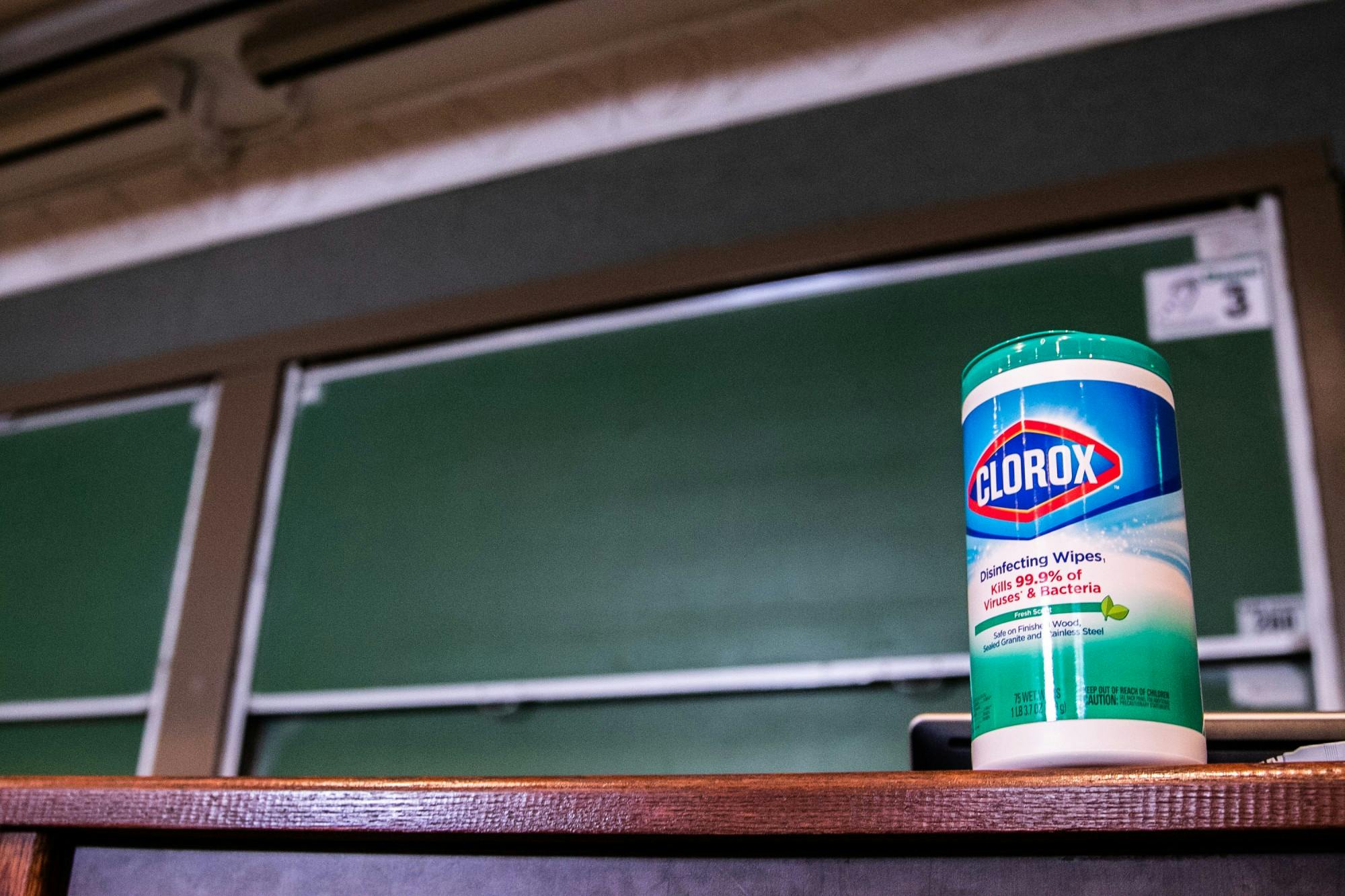In preparation for the return of in-person classes on Jan. 31, Michigan State University released new and returning information for those traveling back to campus.
The newest is the introduction of free KN95 masks for all MSU students and employees. While the formal procedure for procuring these has not been released, the homepage tells students to “check their email” for distribution plans.
Masks will be delivered to department mailrooms for employees. Masks for students will be available at resident hall service centers throughout campus, as well the MSU Union. Each student is limited to one mask per pickup.
MSU deputy spokesperson Dan Olsen said that the introduction of the mask pick-ups was in response to community interest.
“Our students and employees had expressed an interest in receiving those, so we wanted to make sure we could provide them with a KN95 mask,” Olsen said.
According to MSU’s COVID-19 dashboard updated on Jan. 27, 94.19% of students, faculty and staff are fully vaccinated. The vaccine verification form opened up on Jan. 26 for vaccine booster verification.
As of Dec. 6, MSU had approved 3,702 vaccine exemptions out of 4,470 requests, including staff and students.
Most individuals who were granted a vaccination exemption will be able to carry it over into the spring semester without any additional action. The only exceptions, according to Olsen, are those who are requesting an exemption based on all of their classes being online-based.
For those who need to file for such an exemption, it must be submitted via MSU’s COVID-19 vaccine form.
At the beginning of January, the dashboard reported a record high of 661 cases reported by MSU and the Ingham County Health Department. While cases have dropped gradually over the month, there were 453 cases during the week of Jan. 17.
MSU has continued to distribute tests across campus. According to the dashboard, as of Jan. 26, 856 tests have been completed by MSU testing facilities this week.
“We hope that students get tested often, they’re doing the EDP if that makes them feel more comfortable,” Residential and Hospitality Services Communications Director Kat Cooper said. “I know I take it every week even though I’m fully vaccinated and boosted, it just leaves some peace of mind.”
Students who test positive or are exhibiting COVID-19 symptoms will be moved to South Hubbard Hall in isolation housing. Cooper said MSU has made adjustments to the isolation period from five to 10 days in alignment with the Centers for Disease Control.
As of Jan. 27, the COVID-19 dashboard said 32 on-campus residents are in isolation and none in quarantine. Those in isolation have tested positive for COVID-19 or were unvaccinated with close contact. Those in quarantine are exhibiting symptoms and waiting for test results.
About half the students on any given day have chosen to go home to complete their isolation, so not all of them listed on the dashboard are currently residing in Hubbard Hall.
Cooper hopes students in the isolation housing utilize resources for their mental and physical health.
“I think that communication with their professors is key,” Cooper said. “Making sure they reach out in whatever way the professor has indicated in their syllabus that they want to be contacted and letting them know.”
She also suggested having documentation available of their positive test as proof for their professors and bringing an Ethernet cord for solid internet access.
“From a personal perspective, monitoring your symptoms if you have any and connecting with your medical professionals if you need help,” Cooper said. “It’s not a hospital you’re staying in, it’s not a medical facility, students are still responsible for their own medical care. And they can leave to receive medical care.”
Support student media!
Please consider donating to The State News and help fund the future of journalism.
Discussion
Share and discuss “In-person classes are returning: here's what you need to know about COVID-19” on social media.







